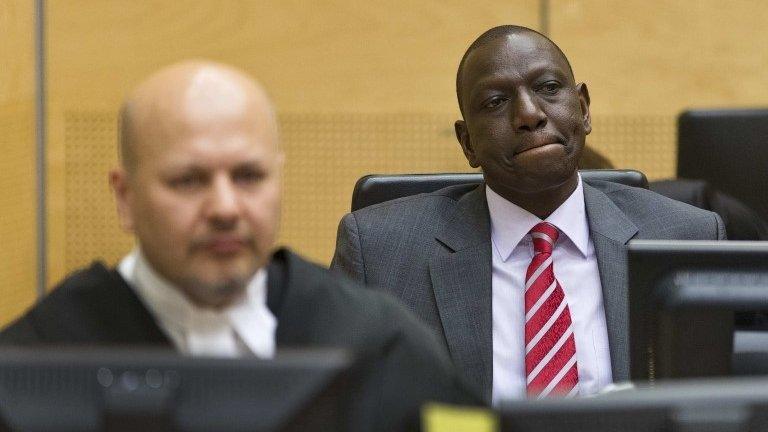Kenya's William Ruto's case dismissed by ICC
- Published
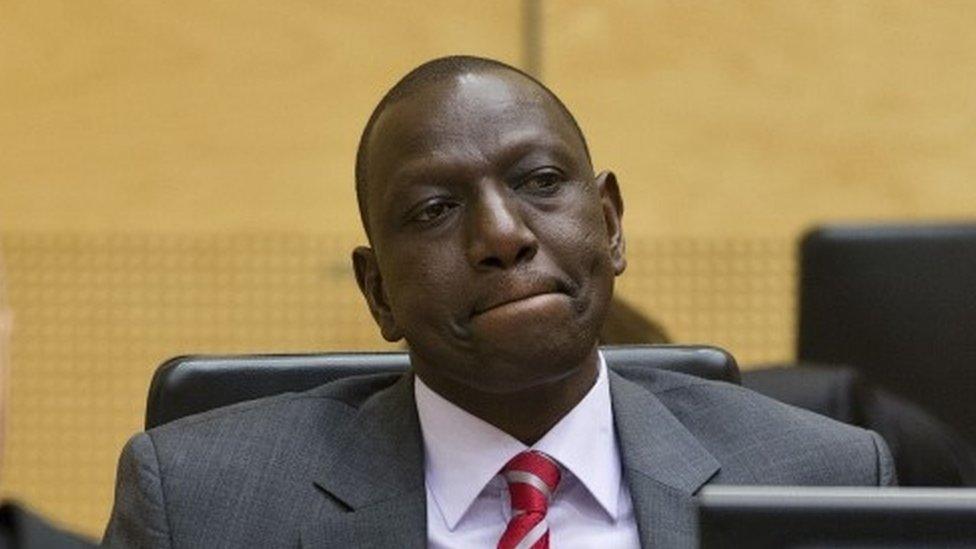
William Ruto denies charges of crimes against humanity
The International Criminal Court has thrown out the case against Kenyan Deputy President William Ruto.
The court ruled there was insufficient evidence, but it refused to acquit him.
In a split ruling, one judge declared it a mistrial because of a "troubling incidence of witness interference and intolerable political meddling".
Mr Ruto denied murder, deportation and persecution charges during violence that followed the 2007 elections in which about 1,200 people were killed.
Kenya's President Uhuru Kenyatta welcomed the ruling, saying the trial had been a "nightmare" for the nation.
Mr Ruto is one of the most senior politicians to be tried by the ICC.
In 2014, the prosecutor dropped similar charges against Mr Kenyatta, alleging that witnesses had been intimidated to make them change their testimony.
The case against Mr Ruto's co-accused, journalist Joshua arap Sang, was also dismissed.
Mr Ruto and Mr Kenyatta were on opposite sides of the 2007 election, but formed an alliance that won the 2013 election.

Analysis: Alastair Leithead; BBC News, Nairobi
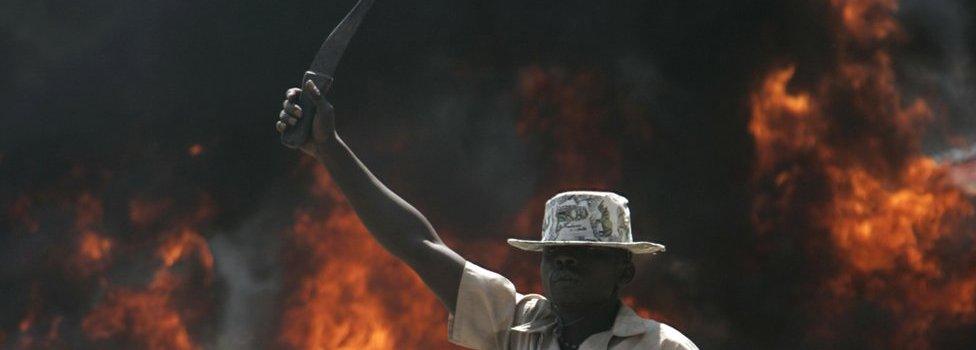
The ICC's decision to "terminate" charges against Kenya's deputy president effectively brings to an end the international efforts to pursue justice for the victims of violence that followed the disputed elections in 2007.
Some 1,200 people were killed and more than half a million were forced to flee their homes during inter-ethnic clashes driven by fierce political rivalries and the pursuit of power.
The court's decision will come as a blow to the victims of the violence, and their families, who want to know the truth behind what happened, who was responsible - and to claim compensation.
"This ruling does not mean the violence didn't occur, it does not mean that the victims do not exist," said Nelly Warega, a human rights lawyer who represents some of the victims.
The pain and ethnic rifts are still felt today, as nobody has yet been held accountable for fomenting the violence which was widely seen as having been organised rather than spontaneous.

Mr Ruto's supporters burst into celebrations after the verdict was announced, reports the BBC's Wanyama wa Chebusiri from his home town of Eldoret in western Kenya.
The prosecution case Mr Ruto was dogged by repeated setbacks.
In February judges at the ICC barred the use of recanted testimony, meaning that prior recorded witness statements could not be used by prosecutors.
Several key witnesses in the case have changed their statements, which prosecutors said was due to intimidation and bribery.
Mr Ruto's lawyers said he should be acquitted because so many key prosecution witnesses either dropped or changed their original statements.
ICC prosecutor Fatou Bensouda acknowledged that the loss of witnesses weakened the case against the deputy president - but she argued there still remained enough evidence to proceed with the trial.
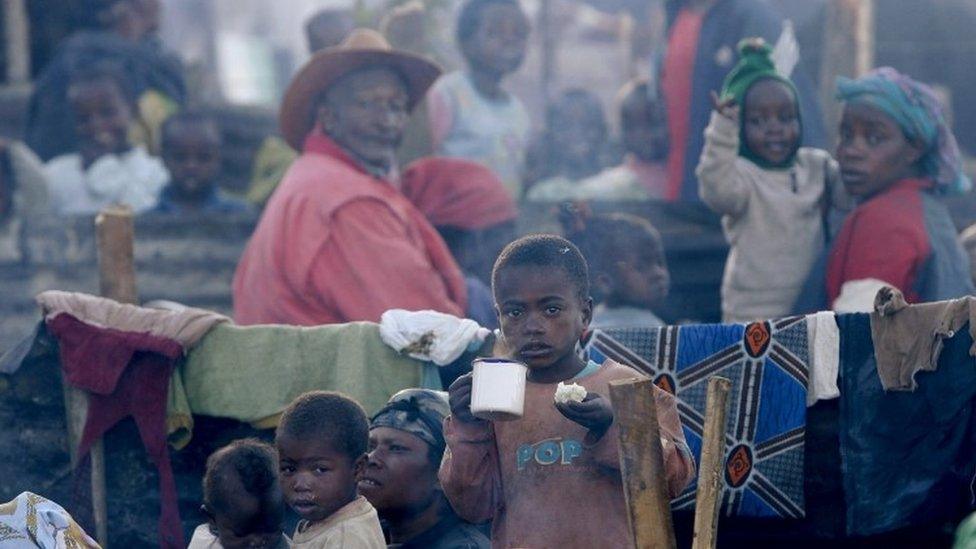
More than half a million people were forced from their homes during the 2007-8 violence
- Published12 February 2016
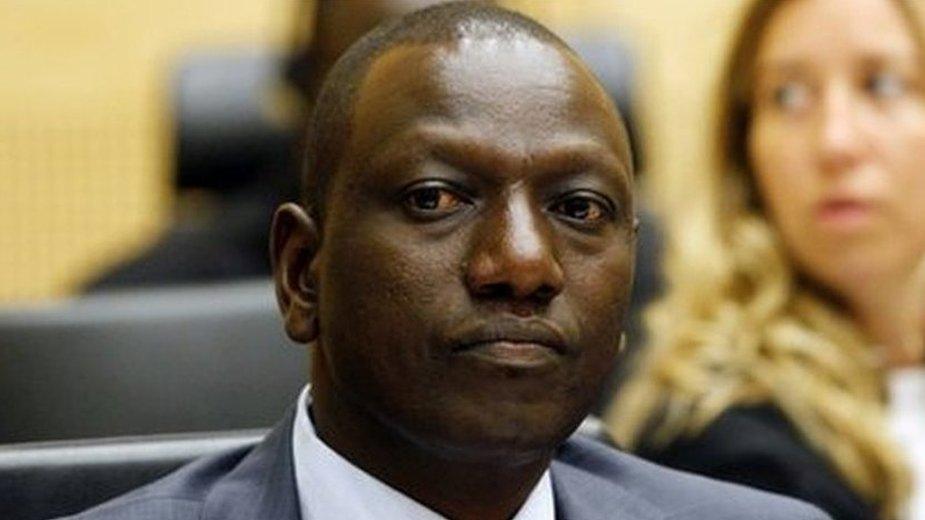
- Published13 September 2022
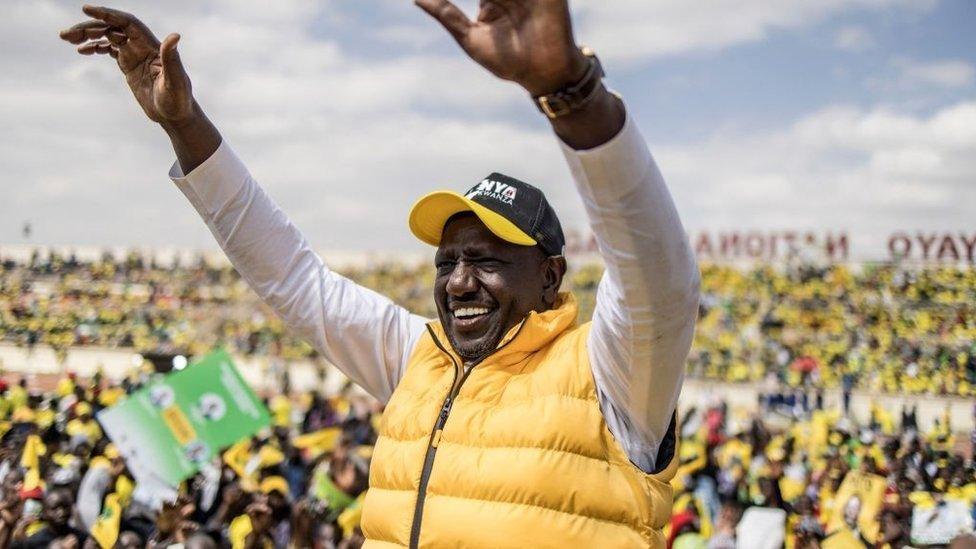
- Published6 January 2015
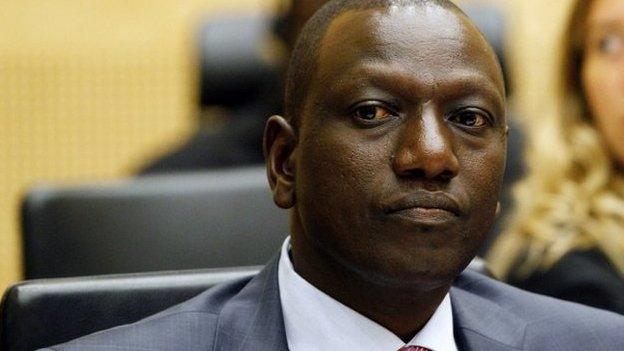
- Published6 October 2014
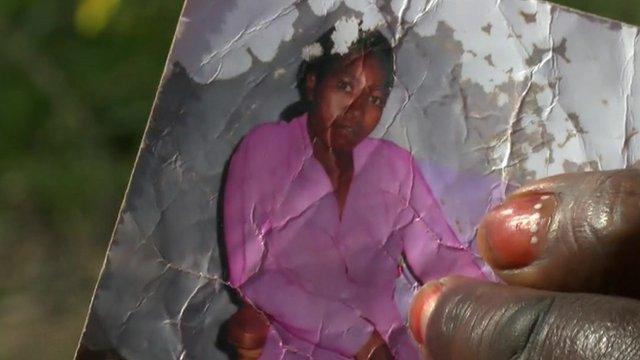
- Published10 September 2013
